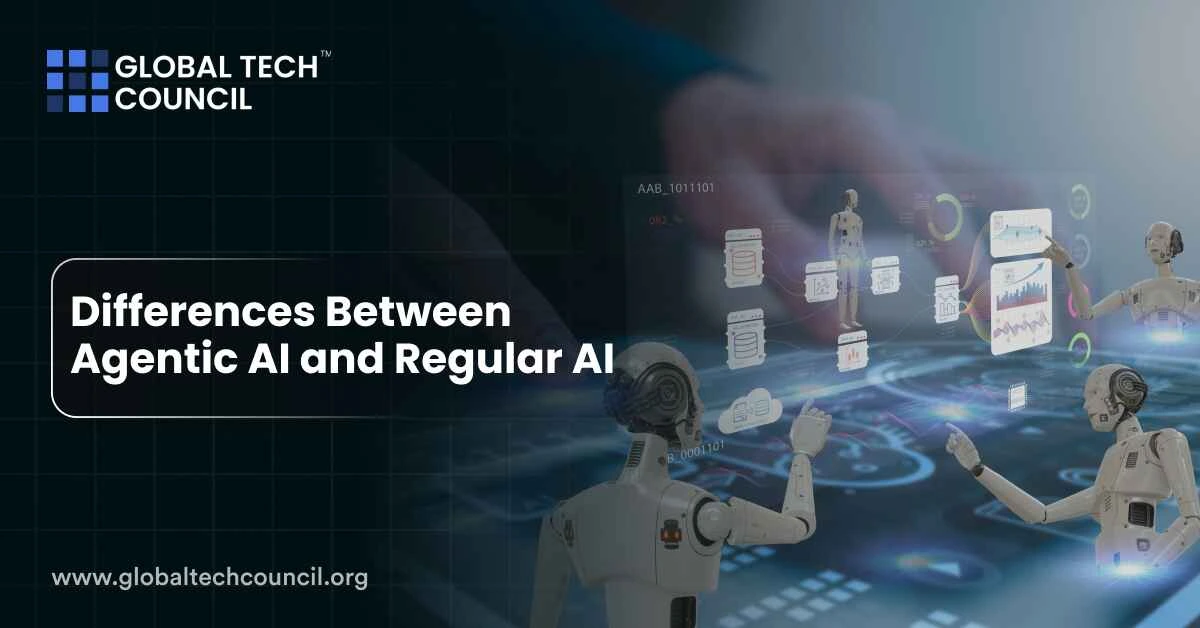
How Does Regular AI Work?
Regular AI, sometimes called traditional AI, sticks to clear rules. It follows specific instructions made by developers. These systems are great for simple, repeated tasks.
For instance, your email’s spam filter checks messages for certain patterns. If a message matches, it moves to the spam folder. Nothing more, nothing less.
Another common use is on streaming sites. Ever noticed how Netflix or Spotify knows what to recommend? That’s regular AI. It looks at what you watch or listen to and finds similar content.
But these systems don’t think for themselves. They react only when something happens. They can’t go beyond what they were built to do.
What Is Agentic AI?
Agentic AI is a more advanced kind of artificial intelligence. It doesn’t just wait for input. It takes action. These systems can figure out goals, plan steps, and work on their own.
They aren’t just tools. They act like decision-makers. That’s why we call them agentic — they work like agents who can think and respond based on what’s happening. To truly understand how Agentic AI differs from regular AI, the Certified Agentic AI Developer™ program helps you explore these distinctions in detail.
Agentic AI Thinks Ahead
The big thing that sets Agentic AI apart is its ability to take the lead. Instead of just reacting, it can start tasks on its own.
Let’s say it’s working in an online store. Agentic AI might track stock levels, forecast demand, and adjust prices — without anyone telling it to.
This ability to act based on goals and surroundings makes it much more flexible. It’s ready for complex tasks that change over time.
Autonomy Is The Main Difference
Regular AI does only what it’s told. It can’t change its actions based on new info. If the situation shifts, the system needs to be reprogrammed.
Agentic AI can shift with the situation. It studies the environment and picks the best option based on what’s needed. It can compare possible results and choose the one that makes the most sense. This kind of flexibility is what gives it an edge.
Can Agentic AI Learn?
Yes — and that’s another big deal. Regular AI stays the same unless someone updates it. It can’t change its methods or learn from new experiences on its own.
Agentic AI keeps getting smarter. It learns from what happens around it and improves over time. It might use a method like reinforcement learning, which means it tries things, sees what works, and gets better at doing it right.
How Many Jobs Can Each Type Handle?
Regular AI works best in a narrow space. It can master one job — like playing chess — but can’t use that knowledge anywhere else.
Agentic AI doesn’t have that limit. It can apply what it knows in different situations. That’s why it works well in places where tasks vary or overlap. It sees the big picture.
Agentic AI In Real Use
Amazon created something called Nova Act. It’s a tool that can browse websites, gather information, and make decisions. It doesn’t need help from a person to do this.
In banking, BNP Paribas teamed up with AI developers. Their goal? To bring Agentic AI into trading, cybersecurity, and data work. The system studies trends and makes choices, improving how financial teams operate.
Where Regular AI Still Helps
Chatbots are still powered by Regular AI. They work well for simple questions. But if you ask something outside the script, they struggle.
Recommendation engines still run on Regular AI too. They look at past actions and make guesses. But they can’t change or improve unless a developer steps in.
What Does The Future Hold?
Agentic AI is gaining ground in many sectors. Businesses want more than just automation. They want systems that can act smart and adjust fast.
But bringing this type of AI into a company isn’t easy. It needs the right setup — not just tech, but trust, data quality, and structure.
Cybersecurity is a good example. ReliaQuest has used Agentic AI in its GreyMatter platform. It helps detect threats fast and act on them right away. That kind of speed is hard to match. For those looking to get a clearer grasp on the differences, becoming a Certified Agentic AI Expert™ is a great way to gain in-depth insights.
Are There Risks?
Yes. With more freedom comes more responsibility. Agentic AI systems make choices on their own. That’s powerful — but it raises tough questions.
How do we keep these systems honest? What if they make choices we don’t expect? We need rules and oversight to keep things on track. Human values must stay at the centre.
Final Thoughts
Regular AI is great for focused tasks. But Agentic AI brings something new: the ability to think, act, and adjust. As this type of AI grows, it could change how we work, plan, and solve problems. The key will be making sure we guide it in the right direction — and don’t lose sight of the human part of progress.
Leave a Reply